|
2018 , oddly enough my year did not start with me getting on a plan, with the other blue economy interns to continue to stage 2 of the programme. Saturday 6th January 2018 , that’s the day my life changed. Global Vision International (GVI) an international organisation had accepted my application for the national scholarship to study marine conservation and master a skill I never put much thought towards, diving.
Upon arriving to the base, located at Cap Ternay Bay. I was filled with excitement I was welcomed by the staff who were each exceptional GVI alumni. I was joining a group of talented people ranging from 18 to 44 year old . First week was very hectic especially for me who was still trying to complete my PADI open water, but I was determined to make this my new life style. Before I knew it I was qualified to be a PADI open water Diver. Unfortunately there was no time to celebrate. I had to catch up to the others by jumping straight into my PADI advanced open water. My advanced open water training sharpened all my dive skills . I remember my 1st dive with GVI very fondly, the salt filled air , struggling to put my fins on, and the moment the skipper counted down 1,2, 3 roll . It's been 2 weeks now and I truly believe I have come along way. Slowly but surely I am finding my place in the blue economy. My PADI allows me to conserve marine life and play my part in the blue economy Demien Mougal
0 Comments
Since leaving for Mauritius over a week ago I can proudly say that I have learnt a lot from this trip. It was certainly not vacation or walk in the park, especially with an intensive schedule from waking up early, long bus rides and reaching the guesthouse late, even the weather gave us a challenge with the constant rain.
Despite these challenges I am privileged to have had the opportunity to get to know my fellow Blue Economy Interns sharing in their laughter, passions and dreams. I think this brought us closer together not just as BE interns but as youths who want to see a brighter future for ourselves and our planet despite our differences. Collaboration, a word that kept echoing itself with each visit, we need to come together to solve the issues afflicting us, individually our voices are often silent, however together we can make it loud enough for others to hear our plight and tell them we are here! (Reminds me of the scene from Horton Hears a Who!) We had the opportunity to see how collaboration between various stakeholders nationally, regionally and internationally have brought great progress. Witnessing various organisations such as NGOs partnering with the tourism industry to educate and protect our environment such as reefs which are themselves valuable resources for the tourism sector. Development which is inclusive to all particularly the local community, which are often marginalised for the so-called development of the country, I ask is it truly development when the population is cast aside for the building of massive resorts and malls? Who is it really benefiting? The collaboration between Seychelles and Mauritius in managing the Mascarene Plateau, shows that we have moved away from seeing each other as rivals but as partners for the benefit of both our islands. Further testament to this new era of collaboration is the IOC (Indian Ocean commission) which works tirelessly to unify and develop our small corner of the world. The coming together of various island states under SIDS (Small Island Developing States) to stand up to the giants in the world to tell them that we matter and that we have a right to exist. But more importantly is seeing young people come together, showing interest in a sustainable future no matter which corner of the globe they are! The visit in Mauritius helped to shed light on the on the various projects being implemented in the country, a chance to go behind the scenes into the processes. It also made me appreciate the people behind the initiatives, their tireless work and dedication to the ocean. I was able to discover the potential within the ocean, no longer are they a vast emptiness but rather a vibrant teeming world of possibilities. Just as important as the discovery of its potential, were the threats faced, from plastics to global warming which are slowly choking this world. Various countries are dependent upon the ocean particularly island states where their economies are interlinked such as fisheries, tourism and increasingly pharmaceuticals, where various life saving compounds have been discovered. I have to admit when going to this visit, I was myopic, thinking only in terms of the tourism industry. I did not think that other areas would be of interest to me, except for when we arrived in Seychelles, I was happy be back, to see my family, unfortunately this was short lived when I discovered that my aunt was diagnosed with terminal cancer. Even now writing this blog I am still going through the emotions of the implications of this disease. However, I have made a pledge to myself and my aunt, who has done incredible work helping people, touching various lives, that I would do the best that I can to ensure that our oceans not only survives but thrives so that someday someone, it could even be a Seychellois can discover those anti-cancer compounds, ridding us of this terrible disease. It is sad to think that this will be the last blog I write for this internship, I do hope that you who is reading this is inspired by my words and is willing to do your part to save our blue world, then I guess I have done a good job. I would like to thank everyone who has helped me throughout this internship and I am truly blessed to have been part of the Blue Economy Program. I wish my fellow interns all the best in the future and be the leaders they wish to see. I sincerely apologise for the long read and I would like to thank you also for reading my blogs. Now I’m off to start a new chapter! Goodbye For now! Yannick Memee .Hi everyone it’s me again and today is our sixth day in Mauritius! Yay, but unfortunately those long exhausted bus ride was getting tiring and the weather was playing a big role on our exhaustion as it wasn’t on our side, we’ve been here for 6 days and we haven’t touched/swim nor snorkel and that made some of my colleges plus myself very moody and disappointed even if we knew that the situation was out of control.
So today we went to visit the Board of investment Mauritius were we learned about:
Later on in the evening after thanking the board of investment we went to visit the University of Mauritius, this bus ride was really interesting we got another driver and this was our favorite! He played all of our songs during the bus ride, kept us alive I may say because we usually sleep during the bus rides but not when this driver is around;) Ohh I almost forgot about the most important thing that we love about this driver, we get to have free Wi-Fi every time he pick us up. At the University of Mauritius, there was a presentation were we learned about reef conservation organization which is a non-profit organization aimed for the conservation & restoration of the marine environment of Mauritius through the implementation & management of research projects. And also their strategic objectives which is:
That’s it for today guy’s! thanks for reading see you next time. By Alexandra Payet;) The amazing 8 days went by fast, fast enough not to realize it would be over soon. A heart rich visit in Mauritius helped with so much knowledge and comprehension. I never thought I would be this much happy and overjoyed. And let me say” I am proud to be a Seychellois”. It is not only the good things that matters but the bad ones do matter too, in fact everything matters. It was sad to observe how some people won’t even care about the ocean or the environment. I am sure you might recall that Mauritius was first to ban plastic bags but sadly this is not the case. We need to come together and help sensitize more about the conservation of our ocean and environment. More needs to be done in other to have a healthier atmosphere. I was sad to learn that an amount of 60 Mauritians drowns every month to the fact that they do not know how to swim. What are we waiting for? Is it not too late to raise awareness? However, there is always a small group ready to face reality and stands on their feet facing the everyday challenge. I am surely pleased with how SYAH Mauritius welcomed us and because of them we had more chances of knowing Mauritius more and more. We are not done with our duties as everything is about to get more serious. The trip did not bring only knowledge but I also gained responsibilities, confidence and the ability to work in a group. No matter what the tasks was we did it as a whole team. I will surely miss my teammates who were always ready to help. I also had 3 amazing chaperones no matter what ups and down we never let them down and I am sure they are all proud of us. Nothing comes easy and a rainbow comes out after the storm. Another journey awaits. Thank you SYAH Written by: Gaelle Boniface Day-7.What is oceanography? It is the description of the oceans or the marine environment. I learned this today when we visited MOI, the Mauritius Oceanography Institute which aims to provide technical support to the blue economy which they call the ocean economy in Mauritius .MOI was established in January 2000,they strive to show the need to rationalize and coordinate research and development related to oceanography. MOI has also made key contributions to help the ocean such as ‘Land Based Coral Farming’. They have also developed techniques such as ‘ex-situ’ culture of corals, which is all done in the effort of trying to restore the corals that have been destroyed or have died. I was very interested in the current projects they have going on such as Marine Ecology, a market guide for fish family in Mauritius, which is soon going to be available online. I personally did not know the career opportunities available in the oceanography field, but I was able to learn about all the interesting job opportunities such as working in the Physical Oceanography department, which is the exploration and study of the physical processes in the ocean. There is also Satellite Oceanography, Chemical Oceanography, Biological Oceanography, as well as Marine Biotechnology and to work in these Organisation you have to have a background of science and of course in that specific field. Who knew there was so much to learn in that field? Shakur Photo Credit: Alexandra Payet Two days before our trip was over, we visited the Mauritius Board Of Investment (who`s name is changing to Economic Development Board). Their vision is to promote the economic sectors of Mauritius and strategize and advice the government laws and amendments. When I found out we were going there, I kept wondering, ``What does this have to do with the blue economy? `` I discovered that the projects they have includes the ocean/blue economy. For example pumping sea water to cool buildings and afterwards the same water could be used for pharmaceutical purposes. Later on, we had the chance to visit the University of Mauritius where we had presentations on mostly the protection of marine life. There were multiple discussions amongst the marine science students as well as lecturers (who were conducting the presentations) and the audience, consisting of us, the interns, and other students of the University.bbñnnnnnnnnnnn One surprising fact I learnt that stuck to mind is that approximately only 5% of our ocean has been explored! Yes, I was aware that it was vast but I never expected it to be like this! Knowing that there are a large number of species yet to be discovered, is just one more reason of why we should protect our oceans. Overall, both the visits were fruitful and the internship programme overall has broaden my knowledge on the Blue Economy and everything in relation to it. It was surely a wonderful experience where I`ve met people from different organisations both in Seychelles and Mauritius as well as made new friends with whom memories were shared. This whole experience has made me see everything from a new perspective and I feel honoured to have been selected amongst the many who applied. It was surely an unforgettable experience. Here`s to my final goodbye, Sophie :) Visiting the UOM (University of Mauritius) was so exciting because from the outside you can see it’s really big, bigger than the University of Seychelles and the inside it was just amazing. I have really learned a lot at the UOM more then what I expected. What they mostly talked about was aquaculture. But what is aquaculture there are many definition to it but all are the same meaning, so aquaculture is the farming of fish, crustaceans, molluscs, aquatic plants, algae and other aquatic organisms, there are many questions we ask ourselves sometimes related to the aquaculture and one is why is aquaculture important? So why is it? Well that is very simple aquaculture is used for producing seafood for human consumption; enhancing wild fish, shellfish and plant harvest; restoring threatened and endangered aquatic species; rebuilding ecologically important shellfish habitat; producing nutritional and industrial compounds and producing fish for aquariums. Before we go on the aquaculture topic I’ll just give a brief introduction on the UOM. The University Of Mauritius was officially established by the university of Mauritius ordinance in December 1965, incorporating the existing school of agriculture. In 1971, the university of Mauritius act further defined the objects, powers, functions and structure of the university. On 24th March 1972, Her Majesty Queen Elizabeth II accompanied by His Royal Highness the Duke of Edinburgh, inaugurated the University of Mauritius. CHARACTERISTICS OF AQUACULTURE AND IT’S PRESENT STATUS. Despite the fact that fish culture is an age-old practice in some regions of the world, it is relatively new as a significant industry in most countries. Aquaculture is considered to be a labour-intensive, but a high-risk bio-industry. An important characteristic feature of aquaculture is that, depending on its intensification, it can be organised as systems which may be termed as: a) Extensive:-Adoption of traditional techniques of aquaculture e.g. dependence on natural productivity and little control over the stocks. b) Intensive:-Adoption of full complement of culture techniques including scientific pond design, fertilization, supplemental feeding or only feeding without fertilization; full measure of stock manipulation, disease control, scientific harvesting, high level inputs and high rate of production. c) Semi-intensive:-Adoption of mid-level technology, partial dependence on natural productivity, fertilization, supplementary feeding, with stock manipulation, medium level inputs and medium rate of production. Another characteristic of aquaculture is that it can be organised on the basis of: Small scale rural aquaculture (even as one-family-unit). Large-scale vertically integrated aquaculture (VIA) which is defined as a centrally managed comprehensive system such that all components from input of energy to final level of produce in the market are coordinated and kept in harmony. Aquaculture is estimated to contribute 10.21 million tons in fish production in 1983. DIFFERENT KIND OF AQUACULRURE
Our week in Mauritius finally came to an end. Before we knew it we were packing up and doing some very last minute shopping. But our last day wasn’t a relaxing day of just sitting around and getting ready to go home. On the programme it was prepared for us to go to the IOC for a presentation about the IOC, where I learnt the history of it and the countries forming part of the IOC. Following this we had a cleanup, where we had to clean the IOC car pack. The only day the sun was high and hot was on our last day, rubbish was everywhere in this area. Plastics was the most common, some was already in the ground decomposing which made me wonder how many years has it been here. Plastics bottles was pretty much all around. It was sad to see a public place near massive buildings in town not being cleaned up. In half an hour there was about 8 bin liners of rubbish we collected. Shocking right? We were also shocked but exhausted that we wanted to get out of the sun. Going back to the hotel some people jumped into the van to go for some last minutes shopping whereas some went with Mr. Deegesh to shop for food and some other essentials. Time came and we were preparing ourselves to go to the airport. We thanked Mr. Deegesh for his hospitality, his kindness during our trip and for welcoming us as his own family. This trip has taught me a lot of things and made me realise that Seychelles is still in a good position but we need to start being more serious about our resources, our environment before we start crying about it and say we use to have it. Yes, it is the end of my internship but it is the beginning of something bigger. The amount of knowledge gained is irreplaceable and should be spread, I PROMISE that I will spread the word out there and help preserve what Seychelles have. It was a pleasure meeting all the other interns and having the chance to live with different characters for a week was quite fascinating but also an adapting skill I learnt. I’m grateful for the few close friends I’ve made during my time. I’m really glad I did this internship and as I worked really had to reach where I wanted it has pay off. Thank you SYAH-Seychelles for this opportunity and good luck to the future interns. Stana. Today we attended a presentation based on the blue economy potential of Mauritius and the use of GIS at the University of Mauritius. Yes you're thoughts are right it is a rare opportunity that not all of us have a chance to attend and gain knowledge in a such informative presentation but don't worry dear readers because I am here today to share with you what I have gathered.
The ocean represents a major aspect for the economic growth of the island. Many of us will questioned ourselves and ask why?. It is mainly because Mauritius have more water than land territories and they are one of the largest Exclusive Economic Zones in the world. They specialized in four specific maritime sectors which include:
Tourism has evolved to be the 3rd economic pillar of the country, due to the famous 4 S's and the ever-growing marine activities throughout the island providing unique travel experiences. There has been consistent increase in tourist arrivals from year 2015 to 2016 and marine tourism is known to have undergone a consequent boost. Furthermore, much interest in grown in marine sports like big game fishing, scuba diving, wreck and dives and dolphin watching. Fisheries & Aquaculture Fish farming has been initiated in 2005 at Mahebourg marine farm and recently, grow fish, an international company has been granted several sites along the western coast for same. However, fisheries has been a predominant sector of the country economy. Contributing to up to 1.5% of the GDP, it represents 20% of the national exports as well. Shipping & logistics The Mauritius Freeport is one of the leading duty-free logistics and distribution hubs of the region. The only commercial port is in Port Louis, the capital. It is the largest container facility in the Indian ocean, accommodating fourth and fifth generation container vessels. Competitive at the seaport and airport make Mauritius an attractive option as a distribution platform. Over 120,000msq of the Freeport infrastructure are available, including dry warehouses, cold rooms, processing units and integrated office facilities. There is also a purpose-built cargo terminal at the international airport, also located at Port louis, which offers additional export transportation. Biotechnology & research. Biotechnology & research in Mauritius is still at the outset of the research mechanism. Primary processes are being carried out by bodies like the Mauritius Research Council for Pharmaceutical and Cosmetic products and the university of Mauritius. The government programmed in 2015 reflects the vision of the government to transform Mauritius into an ocean state by promoting the ocean economy as one of its main pillars of development. The key investment opportunities identified under the ocean economy are as follows
The discovery of a thick sedimentary sequence in the Seychelles plateau have attracted oil companies to prospect in the region.
The first implementation is the production of green cooling or other energy conservation in the port whereas future plans include premium products such as high-end aquaculture and seaweed culture, cosmetics and pharmaceuticals, agrochemicals, water bottling and thalassotherapy, among others.
Geographical Information Systems(GIS) In this new era of modern technology, GIS is a prominent field of knowledge. But how do the Mauritian apply this technique to their oceans? In fact, GIS is a powerful tool that enables gathering of information physically impossible to collect thus devise apt methodologies for various action plans. Navigation maps, seabed exploration models, and designation of particular zones are the primary uses of this technology in the marine field. In year 2, Samanta a student at UOM did a mini project where she focused on using GIS for effective tourism in the north of Mauritius. “Dolphin & whale watching among other thrilling watersports like scuba diving, undersea walk, water skiing, etc are dominant in this region” she said. “However, due to the lack of authentic information available to both locals and tourists, the tourism sector over there has been facing consequent downfalls” she added. Her aim was to use GIS to map the activities and create a database for potential use. Similarly, this approach can be used in any other fields of marine work. On a concluding note I would like to thank you for reading this blog attentively and I do hope you have learnt new things based on the blue economy potential of Mauritius and the use of GIS. Ronny Volcy |
AuthorThe interns of the Prosperity & Environment: Promoting sustainable development opportunities for youth in the Blue Economy sector. Archives
January 2018
Categories |



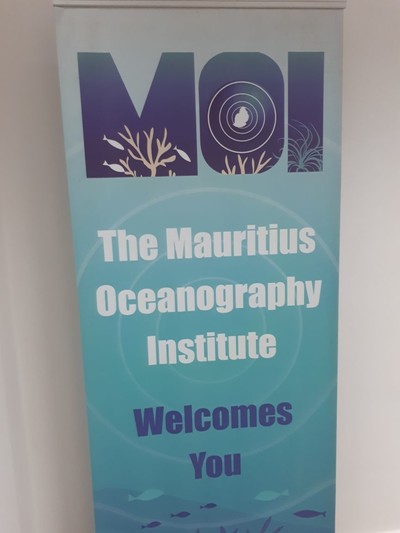
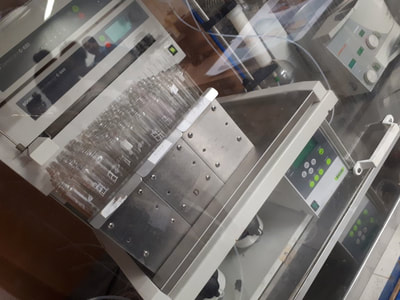
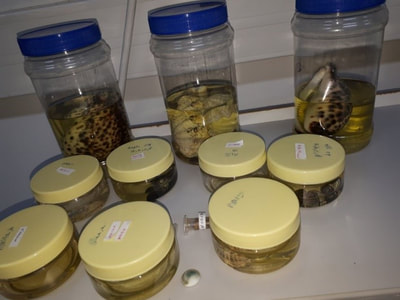
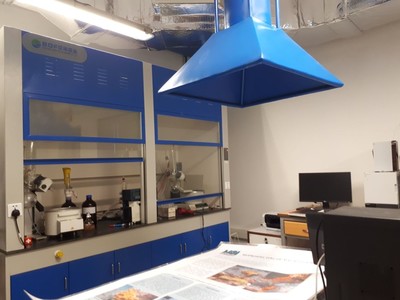

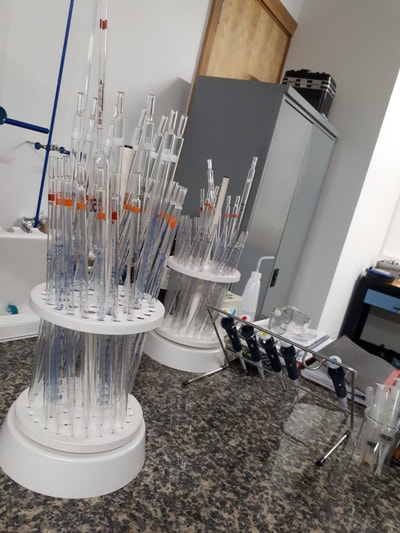

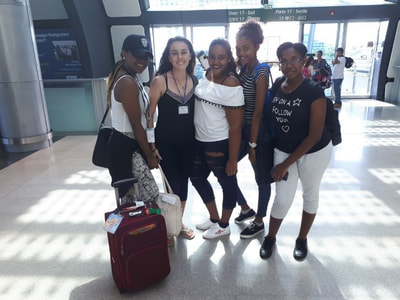
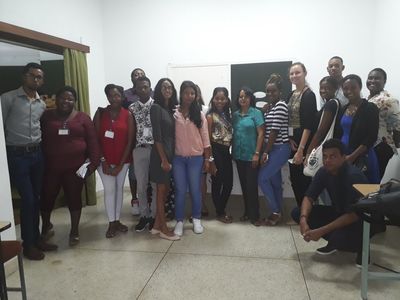
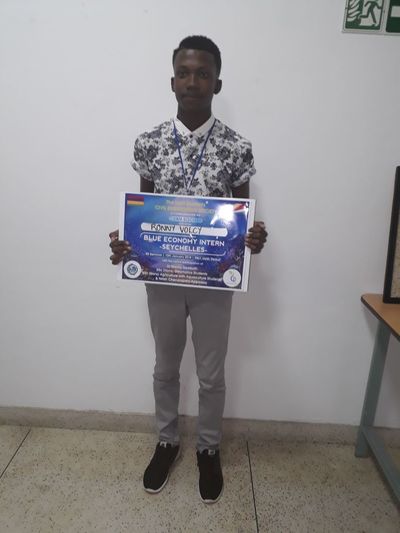
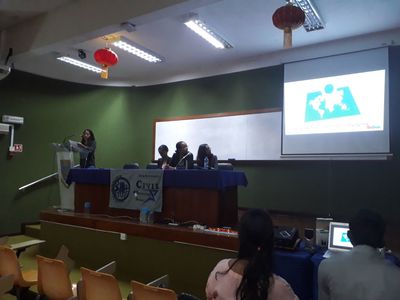
 RSS Feed
RSS Feed
